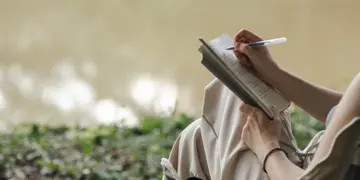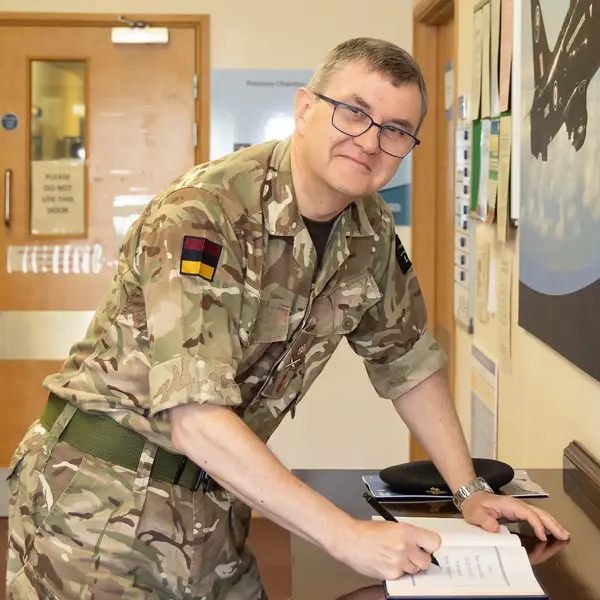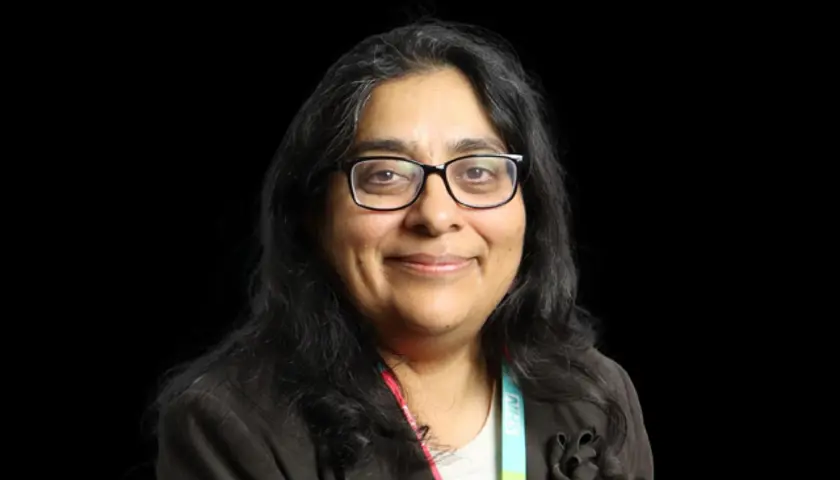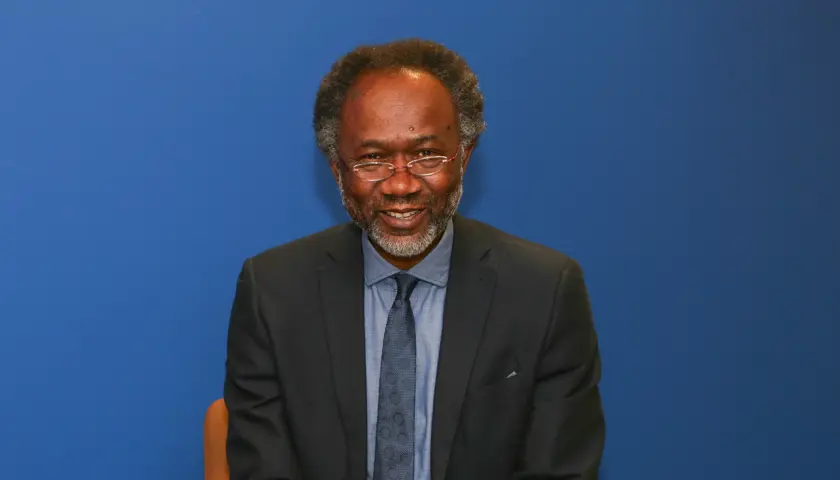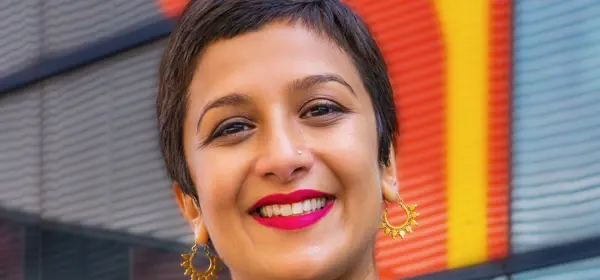Well versed – what poetry can bring to medicine
Well versed – what poetry can bring to medicine
Why would a doctor write poetry? Given how some use it – as a coping mechanism in war and abusive situations, to help them better relate to patients and to combat burnout – they might ask, how can a doctor manage without it? By Seren Boyd
Tim Hodgetts
A pioneer in emergency medicine, Major-General Professor Tim Hodgetts retired from active military duty last year after 41 years of commissioned service. He served as surgeon-general of UK armed forces and the King’s honorary surgeon, and he remains master general medical of the Royal Army Medical Service.
How do you deal with your fears and frustrations when you’re in charge of the field hospital in the middle of a war zone?
Keeping a diary and a healthy sense of humour always served Tim Hodgetts well. An ‘acceptance of your own mortality’ was essential, too, especially when you were in a helicopter strafed by Taliban gunfire, trying to retrieve wounded colleagues.
But it was in poetry Maj Gen Hodgetts found his closest confidant. And throughout a distinguished career, including six tours of duty where he was medical director for the field hospital, writing poetry has remained his ‘safety valve’. Its reductive style, he concludes, just suits his mindset.
‘The diary was just a rapid dump of thoughts before turning the head-torch out and crashing on your camp cot,’ he says. ‘But the poem requires so much deeper thought because you're considering every single word, every rhyme, the meaning of every sentence.’
Maj Gen Hodgetts had long used writing as a way of drawing positives out of negative experiences – what he calls ‘post-traumatic growth’.
After surviving the IRA bombing of the military wing of Belfast’s Musgrave Park Hospital in 1991, he co-wrote Major Incident Medical Management and Support, the international standard on managing mass casualty events.
But it was in Kuwait in 2003, in the run-up to the second Gulf War, when he was leading the only functioning British field hospital there, that he started writing poetry.
As the then defence consultant adviser in emergency medicine, he was also fielding a barrage of consequential policy questions.
‘Everybody's looking at you for answers and leadership in what's a really rapidly changing and uncertain environment. Who are you going to talk to? You can't phone or email home. So you've got to find some other means of processing these really difficult situations and effectively resetting for the next day.
‘When I've reflected on why I reflected, I think it was really to cope with serial moral injury, some of the ethical and clinical challenges that I was coming across on a daily basis, some of the absurdities of war. M*A*S*H is not a parody. It really is more bizarre in a genuine field hospital than you see on the television.
‘[Poetry] has been a way of compartmentalising, being able to move on to the next thing, because some of the things I've seen are truly unimaginable.’
He was never worried what people would think of him or his writing – though he suspects military colleagues would be more ‘appreciative’ of it now that mental health is more openly discussed.
After all, life in a field hospital was still humane, even when it was in Camp Bastion and brutal. ‘When a soldier comes in, bilateral amputee, in hypovolemic cardiac arrest, wearing the same uniform, you feel the whole hospital pivot around that individual. Four o'clock in the morning, everybody's up. The unity of purpose is extraordinary.’
But he wrote his poetry for himself and it was only last year he published his first collection, Frontlines and Lifelines.
The poem requires so much deeper thought because you're considering every single word, every rhyme, the meaning of every sentence
Tim Hodgetts
Terse and moving, his poetry counts the human cost of war and crisis: lying awake in Basra under bombardment from mortars and rockets, a soldier losing both legs in an explosion, ‘the black snake’ of military coffins gliding through Royal Wootton Bassett.
His poems, he says, are written with non-medical military leaders in mind: he has included poetry reading at his session on the advanced command and staff course at the Defence Academy in Shrivenham. ‘I think anybody who is responsible for committing troops to combat has to understand the human consequences of conflict.’
Maj Gen Hodgetts knows not everyone will feel the urge to write verse – but he strongly encourages people to read. ‘It is what you read when you don't have to that determines what you will be when you can't help it,’ he says, quoting Oscar Wilde.
‘You can see the well read person in the crisis meetings: they've got something to fall back on.’
Recommended reading: ‘If’, by Rudyard Kipling
Ananta Dave
Ananta Dave is a consultant psychiatrist and chief medical officer at Black Country Integrated Care Board. She was previously medical director at Lincolnshire Partnership NHS Foundation Trust. Her first poetry collection is called An Agony of Hope.
It was during COVID that Ananta Dave began in earnest to pour her feelings into verse.
It was her way of processing her turmoil: disturbing decisions to make at work, colleagues dying and online memorials, anxious calls from family in India.
To her great surprise, when she shared a poem on social media, people responded. And they continued to respond as she wrote about racism she had experienced, or the injustice of colleagues having to take leave to quarantine after burying loved ones overseas.
‘People started talking about what it meant to them to hear their thoughts being expressed in my words,’ she says. ‘I felt that what I was writing about, perhaps, were the voices of those who were not being listened to, and that those of us who had a platform of some kind, we had to speak up. And especially as a psychiatrist I felt that, unless we spoke openly about things, they would always remain hidden and stigmatised.’
The introspection required in writing poetry has helped Dr Dave reconcile the Indian and British parts of her life, as well as her personal and professional identities. ‘For a long time, I felt that I had to submerge my Indian self to be accepted as British,’ she says. Poetry – which often holds opposites in tension – has taught her to be at ease with complexity.
She carries this into her leadership style, which is a reaction to the ‘closed-door culture’ she has sometimes encountered.
‘As a human, and as someone who had experienced many kinds of abuse and discrimination in my own way, I thought I don’t want to be silenced in yet another way, by being told: “Don’t share your feelings.”
‘I always say leadership is about love. You have to be able to connect with people, feel their emotion, show your emotion, show that you care deeply about what you do.’
Poetry, she says, has also made her more acutely aware of the need to ‘humanise medicine’, to understand patients as complete and complex individuals.
‘It took me to understand myself before I asked myself: "Am I doing justice to those whom I am listening to and I'm inviting into my space?" For those who come to share their stories with us, which is a real privilege for us, what is heard and what’s not? What’s believed and what’s not?
‘Because I know as a doctor that it’s when I am able to understand the whole of the patient, not just part of them, that’s when it makes a difference.’
Dr Dave is clear poetry is not a treatment or therapy – but it can be an ‘important tool’ in creating connection and ‘augmenting treatments’.
You have to be able to connect with people, feel their emotion, show your emotion, show that you care deeply about what you do
Ananta Dave
Although she hasn’t shared her poems with patients, other colleagues have used them in consultations – to help unlock grief or give voice to feelings struggling to find expression. Her poems will appear on digital displays in patient spaces across the Black Country, through a Black Country Digital Firsts award and Arts Council England funding.
For Dr Dave, part of poetry’s power is its ability to ‘bridge the emotional gap’ between doctor and patient, which risks widening with technological advances and remote care options.
‘With all the means available to us, people are living longer. But patients feel as if one part of them has been rescued or revived but the other part of them, that emotional part, is somehow ignored.
‘More and more people are recognising the importance of making care not just purely transactional but relational. If you want that relational, compassionate element in care, you've got to not be afraid of dealing with the emotions. Let them come into the room, let them stay there, be identified, named and held. And that’s when the healing happens.’
Recommended reading: ‘Where the mind is without fear’, a poem by Rabindranath Tagore
Femi Oyebode
Femi Oyebode is a retired consultant psychiatrist and author of several collections of poetry. He is professor of psychiatry at Birmingham University and has written extensively about the value of literature to medicine.
Femi Oyebode makes no bones about it. He thinks a love of language makes you a better doctor.
The best medicine connects with the person at the heart of the patient, and nowhere more than in his specialty, psychiatry. And to truly connect as humans, he says: ‘The only thing we’ve got is language.’
‘Maybe you sit in a clinic and see somebody with Parkinson’s and you think you’ve done your job when we see whether they can swing their arms or not,’ he says. ‘But you don’t take a proper interest in how that disease manifests within a life.
‘If you just ask stupid questions, they will only answer your stupid questions. But if you understand human beings properly, and you read widely, you find that they will tell you aspects of Parkinson’s that are not in the textbook.’
His own fascination with words started early. He wrote his first poem at the age of eight. He would have happily pursued a full-time career in the arts except that a bright child in the Nigeria of his youth studied sciences.
Yet, he continued to write, performing his poetry at the Hay Festival in its earliest days and seeing his work published in Okike, a journal founded by African literary giant Chinua Achebe.
Meanwhile, as with poetry, psychiatry was teaching him to ‘mine his inner life’. Dr Oyebode describes both disciplines as being able to ‘get into the heart of other human beings’.
In psychiatry the doctor is dealing with ‘intrinsically a disorder of the person’, manifested through ‘all the bits of us that make us human’ – our ability to think clearly, plan, use emotions, interact with others.
‘So you have to learn how to listen properly to people. In the same way, when a poet is writing a narrative poem they’re preoccupied with how language functions, the rhythm, how people speak to one another, the cadence. The choice of words is everything.
‘So if you are listening to the cadence of the patient, you can tell straightaway where there's a disruption in it, and that tells you they're about to lie, or they're about to go deep. When they use that word, not all the other words that they could possibly have used instead, it tells you something about what they’re trying to say, what they’re trying not to say.’
Dr Oyebode, who has co-hosted BBC Radio 4 programmes, has frequently had interviewees or producers asking him how he has managed to extract so much information from people. Here, too, he credits poetry and what it has taught him about using the right pitch and tone.
‘As psychiatrists, we understand how to lead people gently, without them knowing it, to say something they weren’t intending to say and, when they’ve said it, to continue to feel comfortable saying it.
‘I have to find a way to get them to tell me the things that matter, all the time pacifying, holding and sometimes provoking, sometimes charming, sometimes assertive. You’re bringing the totality of your person into the encounter.’
For all these reasons, Dr Oyebode has made it his mission to encourage medical colleagues to read literature, running a medical humanities course for medical students for many years. His 2009 book, Mindreadings, also explores the intersection between literature and psychiatry.
The choice of words is everything
Femi Oyebode
When medicine becomes ‘mechanical’, the risk of burnout looms large, he says. Literature can help medics mine ‘the extraordinarily rich environment of clinical practice’ and derive greater pleasure and meaning from their work, he believes.
At a recent Royal College of Psychiatrists conference, he read speeches by female characters in Euripides’ The Women of Troy and Hecuba, to explore the experiences of today’s refugees and asylum seekers in the context of war and loss.
‘Euripides is writing for us, even though he is 2,000 years old,’ he says. ‘It moves people to tears.’
Recommended reading: The Black Monk and Ward No. Six, short stories by Anton Chekhov
- These three doctor–poets participated in the recent klipGlobal event in London, ‘Poetry as Medicine’. The evening, in aid of The Poppy Factory and Doctors in Distress, explored ‘the healing power of bibliotherapy’. Consultant psychiatrist and klipGlobal founder Sridevi Kalidindi is keen to see doctors and patients accessing ‘the healing on their bookshelf’. ‘When there are things we can’t quite formulate into words and then we read something that resonates deeply and stirs deep emotion, it can help us process and heal and build resilience,’ she says. ‘Feeling understood and accepted is very powerful: it’s vital for a good therapeutic relationship.’
(Main image credit: Getty, image of Femi Oyebode courtesy of RCPsych)


